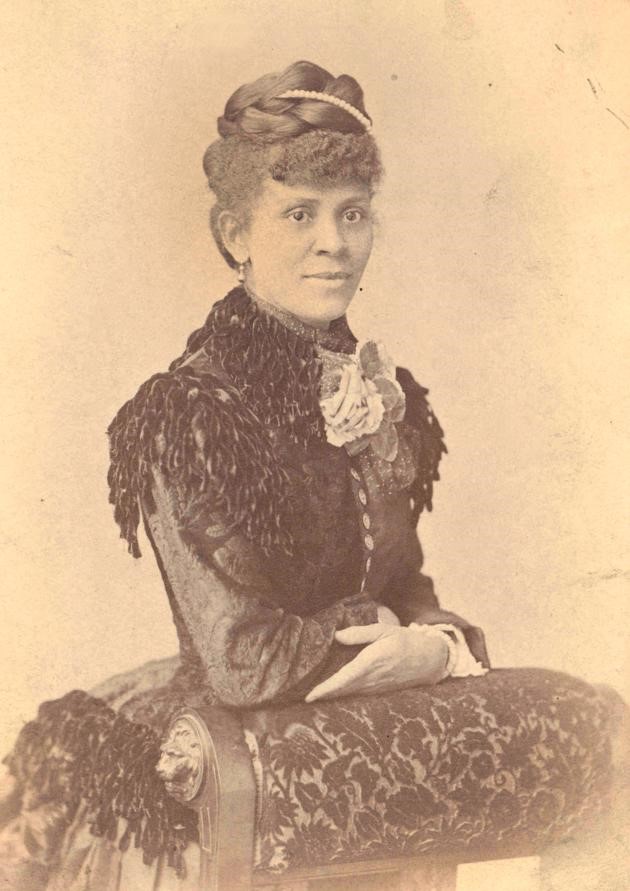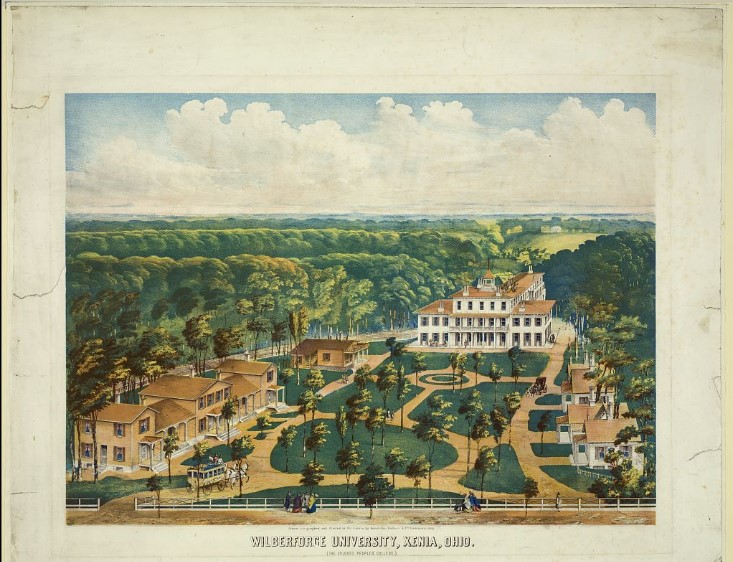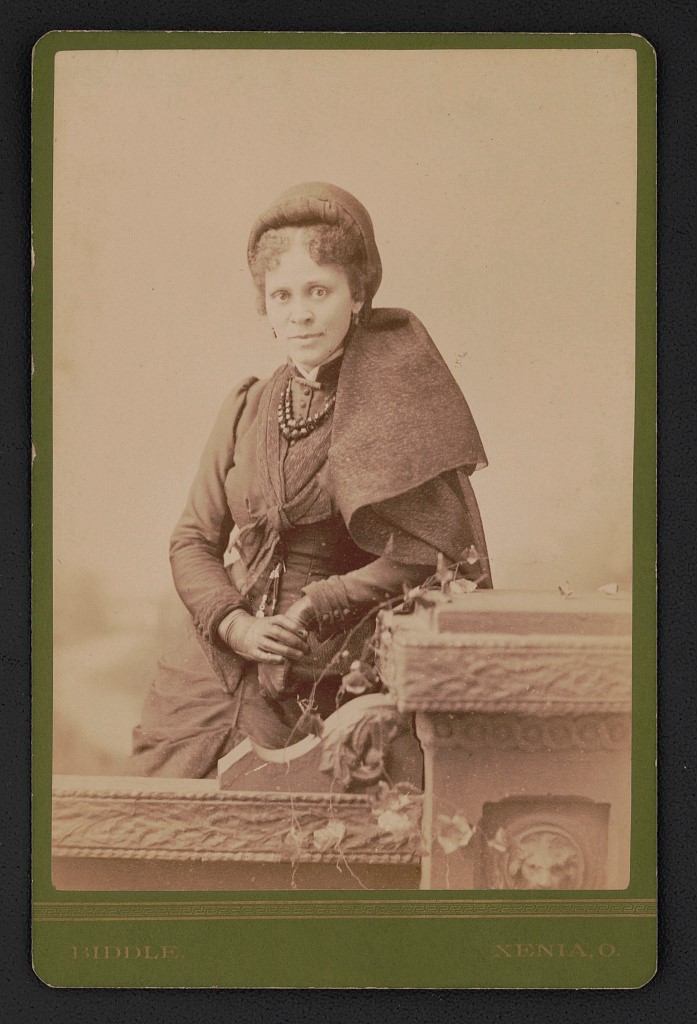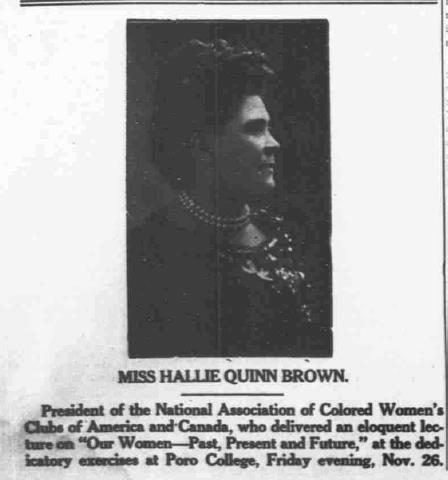March 10, 1845
Celebrate the 100th anniversary of the 19th Amendment with stories about the people and events that led to the passage of women’s suffrage in the United States.
Hallie Quinn Brown was a preeminent educator, writer, public speaker and activist in the causes of civil rights and suffrage throughout the 19th and 20th centuries.
Hallie Quinn Brown. Image courtesy of Wilberforce-Payne Unified Library.
Brown was born on March 10, 1845 (sometimes reported as 1849) in Pittsburgh, Pennsylvania, to Frances Jane Scroggins and Thomas Arthur Brown – both of whom were freed slaves and involved with the Underground Railroad. Brown attended Wilberforce University in Ohio and graduated as the salutatorian. She also studied at the Chautauqua Lecture School, making her among the first African American woman university graduates in the United States at the time.
Following graduation Brown taught in Mississippi and South Carolina, and in 1885 became dean of Allen University. She also worked at public schools in Dayton, Ohio, establishing a night class for migrant workers. Brown was eventually appointed dean of women at the Tuskegee Institute in Alabama, where she worked alongside Booker T. Washington. She later returned to her alma mater as a professor, and from 1893-1903 served as professor of elocution at Wilberforce.
Lithograph of Wilberforce University, ca. 1850-1860. Courtesy of the Library of Congress.
Brown was dedicated to the advancement of women’s clubs for African American women. In 1893, she was the principal promoter of the Colored Woman’s League, which went on to become part of the National Association of Colored Women (NACW). She also served as president of the Ohio Federation of Colored Women’s Clubs from 1905-1912 and as president of NACW from 1920-1924.
A renowned elocutionist, Brown conducted speaking tours and gained a significant following, particularly in the United Kingdom. During these tours, she made several appearances before Queen Victoria, and in 1889, shared tea with the queen. In 1899, she also represented the United States at the International Congress of Women, which met in London. Brown was also a staunch advocate for temperance causes, women’s suffrage, and civil rights, often delivering speeches on the topic of granting full citizenship to women and guaranteeing civil rights for African Americans.
Hallie Quinn Brown photographed by F.S. Biddle between 1875 and 1888. Courtesy of the Library of Congress.
In a speech delivered at an 1889 conference of the African Methodist Episcopal Church (AME Church), Brown drove home her point of equality between men and women:
“I believe there are as great possibilities in women as there are in men. … We are marching onward grandly. … I repeat we want a grand and noble womanhood, scattered all over the land. There is a great vanguard of scholars and teachers of our sex who are at the head of institutions of learning all over the country. We need teachers, lecturers of force and character to help to teach this great nation of women.”
Throughout her life, Brown continued to stand up for her belief in equality, and in 1893 she organized a campaign against the exclusion of African American women from the Columbian Exposition in Chicago.
As president of NACW, she also denounced, through writings and speeches, a statue proposed by the United Daughters of the Confederacy that portrayed African American women in a stereotypical light. After widespread protest led by the African American community, including D.C. activist Mary Church Terrell, the bill proposing the monument died in the House (though it had passed in the Senate).
Among her other activist efforts, she began a campaign to preserve the home of Frederick Douglass in Washington, D.C., which was ultimately successful. Brown was later active in Republican politics, directing campaign work on behalf of President Calvin Coolidge and addressing the Republican party’s national convention in 1924.
A feature on Hallie Quinn Brown from the December 4, 1920, issue of Poro College’s The Broad Ax newspaper. Courtesy of the Illinois Digital Newspaper Collection.
Brown passed away on September 16, 1949. Her legacy lives on through her many published works, including the 1926 “Homespun Heroines and Other Women of Distinction,” which includes short biographies of sixty African-American women.
Brown is also the namesake of the Hallie Q. Brown Memorial Library at Central State University in Wilberforce, Ohio and the Hallie Q. Brown Community Center in St. Paul, Minnesota.
The Hallie Q. Brown Memorial Library at Central State University in Wilberforce, Ohio. Image courtesy of Central State University.
2020 marked the centennial of women’s suffrage in the United States.




